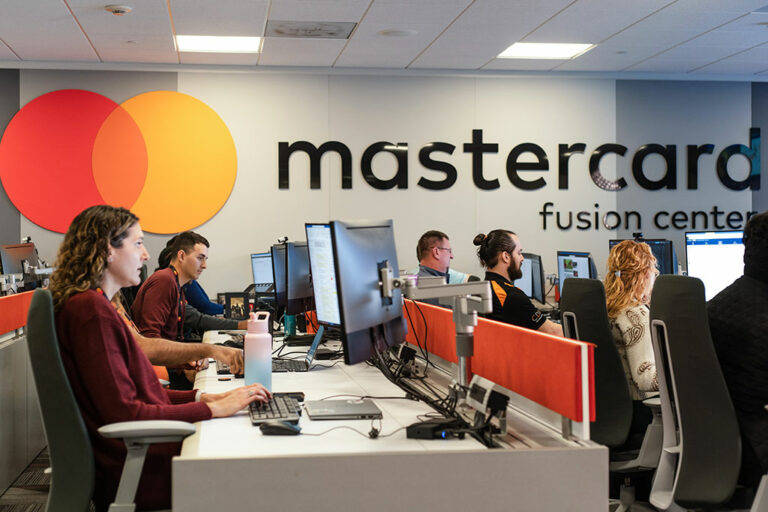Masterсard’s latest foray into generative AI is only a part of its security plans, which has since become its top priority.
Payments giant Mastercard Inc (NYSE: MA) has taken steps to help the plethora of banks within its network to detect fraud. This follows after the firm recently confirmed joining the generative artificial intelligence (AI) race by building its own model.
According to a CNBC report, the new AI model is called Decision Intelligence Pro. It is capable of detecting fraudulent transactions by up to 300% more, says Mastercard. By implication, banks now stand better chances of determining the legitimacy of suspicious transactions on their network in real time.
How the Model Works
Mastercard has also shared the workings of its new AI solution. According to Ajay Bhalla, the president of the firm’s cyber and intelligence business unit, the company’s card network processes about 125 billion transactions annually. So, its proprietary algorithm is trained on this transaction data to help the AI to understand relationships between merchants. That is, unlike large language models such as OpenAI’s GPT-4 or Google’s Gemini, the Decision Intelligence Pro does not rely on words. Rather, it bases its prediction on patterns by considering the history of the cardholder’s merchant visit.
Furthermore, Mastercard explained that instead of textual inputs, the algorithm determines, from history, whether the business taking place is a likely business for the customer to be involved in.
It puts its assessment on a scorecard for a final decision to be reached, says Mastercard. Generally, a high score indicates that the transaction aligns with the behavioral pattern of the cardholder. A lower score, on the other hand, signals otherwise.
Interestingly, however, it only takes about 50 milliseconds to complete the entire process, the firm added.
Mastercard and Others Go Big on AI
Mastercard’s latest foray into generative AI is only a part of its security plans, which has since become its top priority. Over the last five years, the firm has invested heavily (over $7 billion) in cybersecurity and AI technologies.
However, it might be noteworthy that Mastercard is not alone in this endeavor. Virtually, every major payment platform has also invested massively into AI in recent times.
Visa, for example, spent at least $100 million in a venture fund for generative AI startups established by it last October. Similarly, Coinspeaker last week announced that PayPal was launching new AI-based products alongside its new one-click checkout feature.
From all indications, it looks as though AI may be set to cause major changes in the products of several companies within the digital banking and payments space.
next

